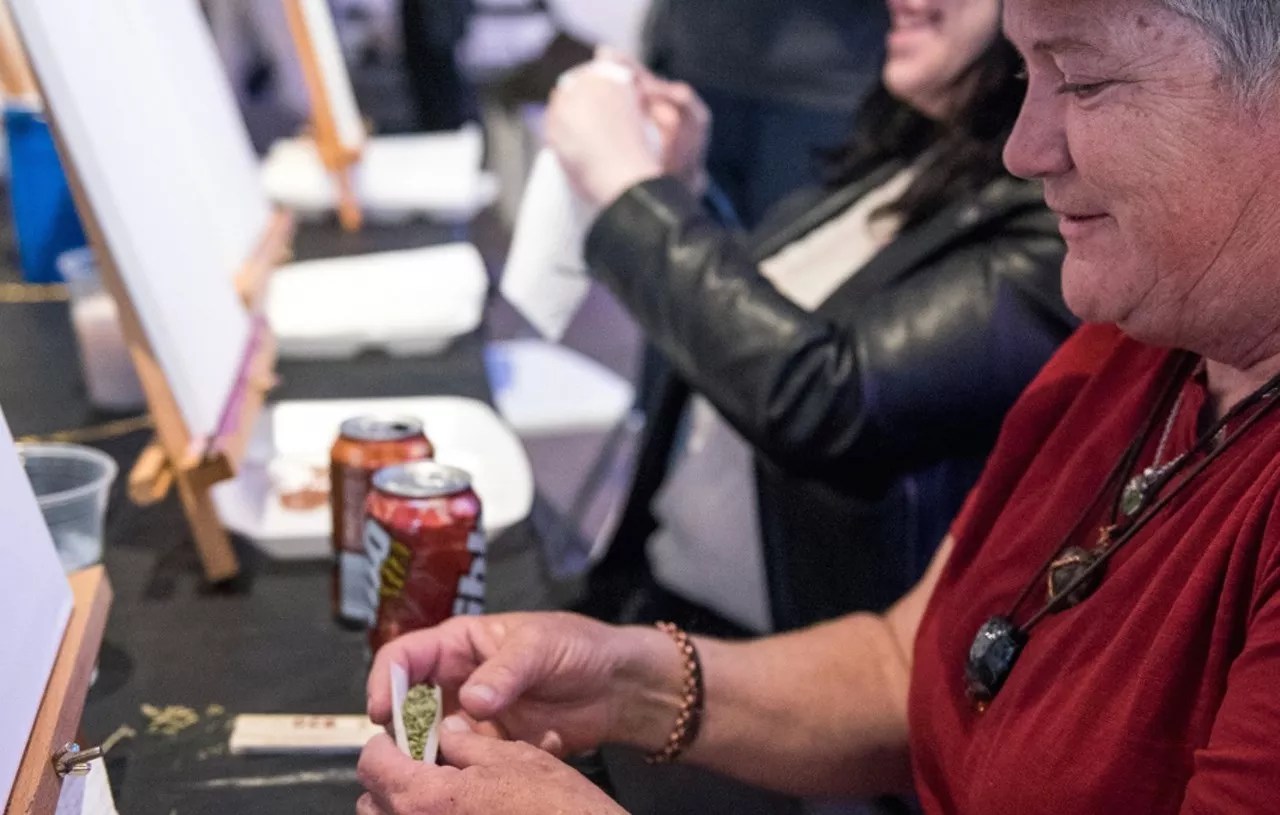
Jake Cox

Audio By Carbonatix
Marijuana cafes and delivery could soon become licensed and fully functioning in Denver if Denver City Council heeds the recommendations of an advisory board approved by Mayor Michael Hancock’s administration.
The Colorado Legislature passed bills legalizing marijuana delivery and social consumption businesses in 2019, with medical marijuana delivery and social use laws both taking effect this year and recreational delivery coming online in 2021. However, local government must opt in to the new laws before social use and delivery are allowed, and Colorado’s largest city and the state’s cannabis capital has yet to do so.
Denver’s Marijuana Licensing Work Group, comprising public health and local government officials, pot-industry members, child-welfare advocates and other community stakeholders, has been meeting since May to craft proposed updates to the city’s marijuana policy. Those recommendations, released December 7, outline expansions that would allow indoor smoking at certified businesses, mobile consumption lounges, discounted licensing fees for social equity business owners, and recreational and medical marijuana delivery.
The city’s Office of Marijuana Policy and Department of Excise and Licenses will hold public reviews of the proposed ordinances on December 15 and December 17 to gather more feedback before the measures are put in front of city council. There is no date set when council will vote on the new ordinances; written public feedback will be accepted until January 4, according to Excise and Licenses. The department is optimistic, however, that the new rules will be implemented by the second quarter of 2021, and that delivery and social use businesses will be in operation by the third.
Denver currently operates under a local initiative that licenses social pot-use businesses, but that program bans indoor smoking and prohibits any social use establishment from operating within 1,000 feet of rehabilitation centers, schools, city-owned recreation centers and daycare centers. The proposed rules keep those setbacks in place, but much of the rest of the recommendations align with the new state hospitality laws.
Under the MLWG’s proposed hospitality policy, businesses such as marijuana dispensaries, cafes, yoga and art studios, restaurants and other establishments could apply for marijuana hospitality licenses. Micro-sales licenses for businesses that wish to sell small amounts of marijuana at their consumption areas would also be available. Pot hospitality businesses couldn’t allow marijuana use between the hours of 2 and 7 a.m., and tobacco and alcohol would be banned at all times.
The advisory group recommends making marijuana delivery permits available by July 2021, and is advocating that the permits only be available to applicants who qualify as social equity marijuana business owners. The social equity designation, a definition adopted by the legislature earlier this year, stipulates that a qualified social equity applicant must be a Colorado resident who has been arrested for or convicted of a marijuana offense, was subject to civil asset forfeiture related to a marijuana investigation, or has lived in a designated zone of low economic opportunity or high crime; anyone with a family member who has been subject to marijuana-related offenses would also be eligible.
Excise and Licenses communications director Eric Escudero concedes that the proposed rules “won’t make everyone happy,” but adds that the advisory group’s work is supported by Hancock, a past opponent of social pot use, and that Denver City Council members Candi CdeBaca and Chris Hinds both sat on the MLWG board.
Under the proposal, social equity business owners would be eligible for a 50 percent discount in business license fees. Minority marijuana business owner advocates were pushing for small-interest loans or grants for social equity marijuana entrepreneurs as well, but no such funding was included in the MLWG’s recommendations. During the group’s meetings, talk of a deflated city budget and worries of potential discrimination lawsuits popped up frequently.
“If the pandemic weren’t here, and if America, the state and city weren’t in financial straits, I’d be overly concerned about that,” says John Bailey, Black Cannabis Equity Initiative founder and MLWG boardmember. “But there’s so much going on that we need to figure out, either philanthropically from foundations, or from the industry, or a tax on delivery – something to get those dollars being earmarked for social equity activity.”
Bailey plans to push state lawmakers for a bill establishing startup funds for social equity marijuana entrepreneurs, and has been working with industry organizations such as the Marijuana Industry Group, Cannabis Trade Federation and Colorado Leads to create programs funded by the private sector.
“It’s a mixed bag for me…there is a sense of urgency here. Business as usual hasn’t been beneficial for communities of color,” he says. “At least this gives us a guidepost, and some opportunities to measure where we’re at.”
More communities in Colorado are now considering the new marijuana business permits. Aurora City Council approved a recreational marijuana delivery measure on first reading on December 7, while Boulder, Longmont and Superior governments have already begun allowing medical marijuana deliveries. Dillon, Glendale and Adams County all recently opted into marijuana hospitality, as well.